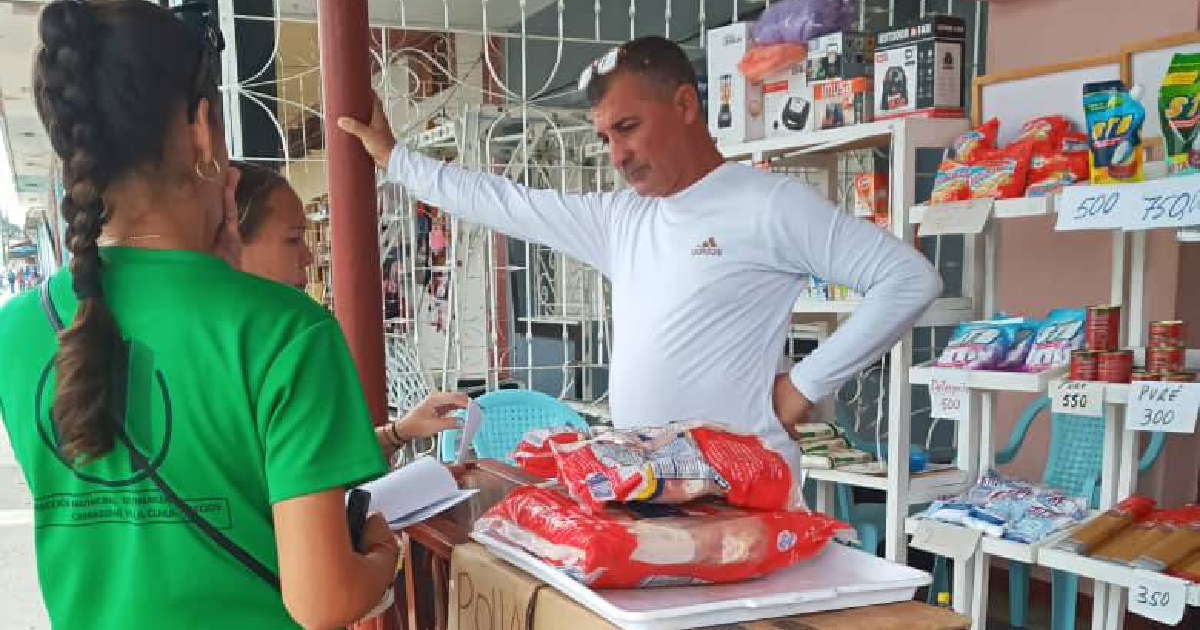The Ministry of Finance and Prices (MFP) in Cuba has closed businesses and halted projects for 368 "non-state actors" between August 17 and 23, continuing its governmental crackdown on the private sector.
In just one week, the government ordered the closure of 171 establishments and the termination of 197 work projects for private entrepreneurs. Additionally, there were 58 product confiscations and 773 forced sales due to "detected violations."
The MFP attributed these sanctions to reasons such as "selling products without displaying prices, failing to show the legality of the raw materials used in services, not displaying QR codes for payment gateways, and employing staff without the required contracts," according to the official regime newspaper Granma.
The governmental "control actions" were aimed at detecting price violations, fiscal inspections, and banking compliance, as part of the intensified campaign to regulate the private sector.
Price Violations and Enforced Regulations
This week, authorities claimed the main violations were the failure to comply with prices approved by the Committee on Contracting and Pricing and those regulated under Resolution 225/2024 of the MFP.
Under this recent regulation, in effect since last July, the government set retail prices for six high-demand basic products: cut chicken, cooking oil (except olive oil), powdered milk, pasta, sausages, and powdered detergent.
Since its implementation, authorities have increased control operations nationwide to detect price violations in the non-state sector and penalize offenders.
The MFP also reported that to date, 157,331 fiscal control actions have been carried out, determining debts totaling 2,999,390,000 pesos. Additionally, 49 fiscal audits amounting to 58,605,000 pesos and 2,772 fiscalization operations totaling 886,314,000 pesos were conducted.
Authorities also supervised compliance by 154,510 taxpayers, of whom 99,871 were found to have underreported. These individuals were determined to owe 2,054,471,000 pesos.
In mid-July, following the implementation of capped prices for private businesses, Prime Minister Manuel Marrero Cruz clarified that the government does not aim to close businesses indiscriminately but rather to persuade merchants to comply with established regulations.
However, just over a month into the enforcement of Resolution 225/2024, the regime's crackdown on the private sector has intensified.
As a result, the population has reported the "disappearance" of many fixed-price products from the offerings of micro, small, and medium-sized enterprises (MSMEs). Complaints also persist regarding state stores in freely convertible currency (MLC), which maintain exorbitant prices, unaffordable for the vast majority of Cubans living on the island.
Marrero Cruz stated in July that the price caps were established to curb uncontrolled growth, though he admitted they still do not reflect an appropriate relationship between prices and salaries. Furthermore, he acknowledged that MLC stores sell at prices equal to or higher than MSMEs.
Frequently Asked Questions About Cuba's Private Sector Crackdown
This section addresses common inquiries regarding the Cuban government's recent actions against private businesses and entrepreneurs.
Why did the Cuban government shut down private businesses?
The government cited reasons such as selling products without displaying prices, failing to show the legality of raw materials, and employing staff without proper contracts.
What are the consequences of Resolution 225/2024?
The resolution sets retail prices for six basic products, leading to increased government control operations to enforce these prices and penalize violations.
How has the population responded to the crackdown on private businesses?
The population has reported the disappearance of many fixed-price products from MSMEs and continues to complain about high prices in state stores selling in freely convertible currency (MLC).
